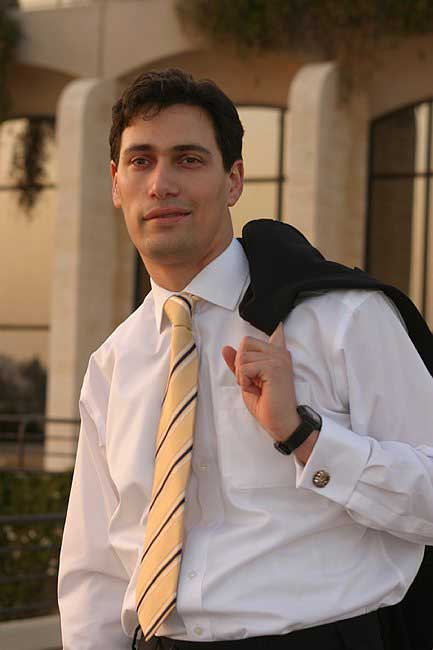Yahrzeit for Chaim Bermant
This Sunday marks the eighth anniversary of my Father's Yahrzeit. Looking through his many articles, I couldn't help noticing this piece about Harold Pinter, published on the 15th February 1991. Even now, it is so relevant:
Harold Pinter is a man of few words, most of them silly.
Yet he is one of the foremost playwrights of our time - which does not mean he is a Shakespeare or even an Ibsen, but he does have a deep insight into the quirks of human nature, and a unique ear for the ambiguities and gaps of human speech.
He eavesdrops on silence. Where others are generally concerned with people who have too much to say and say it too vehemently, he is concerned with people who have too little to say and and don't know how to say it at all and his audience gets caught up in trying to extrapolate meaning from what may seem to be meaningless. He is the poet leaureate of the inarticulate.
I can't claim to have seen all of his plays, but the only one of his characters I found unconvincing was the professor in The Homecoming, for professors seem a little outside his range. He is far happier with characters of limited intelligence and, if his public utterances are anything to go by, he shares their limitations.
Yet there seems to be a general belief that anyone who displays a talent or genius in one area of life must have something worthwhile to say on every other, and when a week or two ago the Observer invited about a dozen well-known figures to comment on the rights and wrongs of the Gulf War, Pinter was inevitably among them.
There has been much debate in recent months on the concept of a just war. Wars are murderous and messy, for if one knows how they begin, there is no telling how they will finish and if the world was full of Pinters (who was a conscientious objector even in peacetime) one could probably get by without any wars (though it would be become an insufferable place in other respects).
The world, however, is rather more complicated and there can come a time when war with all its hazards carries fewer dangers than appeasement and that time came when Saddam Hussein devoured Kuwait on 2 August.
If ever there was a single instance of unprovoked aggression, this was it and one might have thought that it would not be impossible for even the most peace loving of men to muster a good word for America, or at least a bad one against Iraq.
Not Pinter.
Pinter's thinking, if one may call it that, goes back to the Vietnam war, when all good men and true - not a few of them Jewish - seemed to think that the Viet Cong were the innocent victims of American aggression. America in fact had good grounds for its intervention. I'm only sorry it failed, and given the subsequent history of the area, the people of Vietnam must be even sorrier.
In this particular instance, however, Pinter invoked America's intervention in Grenada, Panama, and Nicaragua, as if they could be spoken of in the same breath as Iraq's invasion of Kuwait.
America was welcomed as a liberator by the majority of the population in all three countries, and, in each instance, it withdrew the moment it installed a stable and representative government, whereas Kuwait has actually been incorporated as a province of Iraq.
Pinter laughs at the suggestions the Americans 'were inspired by a determination to keep the world clean for democracy' but in fact they were doing just that.
They are unlikely to make Kuwait clean for democracy because there is no such thing as a democratic Arab state (and precious few Muslim ones). But the fact that Kuwait happened to have been, and is likely to remain, a feudal oligarchy, is no reason why it should be left to the mercy of Saddam Hussein. And, of course, if he had been allowed to keep Kuwait, he wouldn't have stopped there.
Nor does Pinter spare a thought for the unprovoked attacks on Israel, the threat of gas warfare or the actual use of poison gas against the Kurds. He sees the world in simple terms and reacts to the events like the product of a third-rate poly who has been brought up on a diet of pre-packed political slogans and presumes that any country or cause actively supported by America must be in the wrong.
America has not always been inspired in its presentation of policies, and it has occasionally been clumsy in their execution, but, with all its faults, no great power has been so mindful of its responsibilities, and none has been less assertive, and it can be seen at its best in the present crisis.
